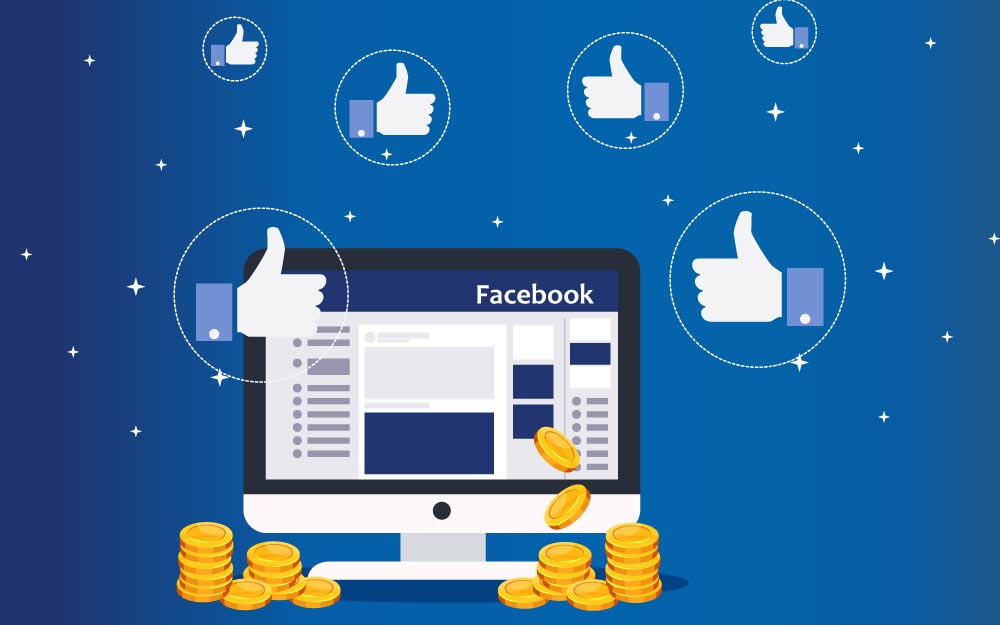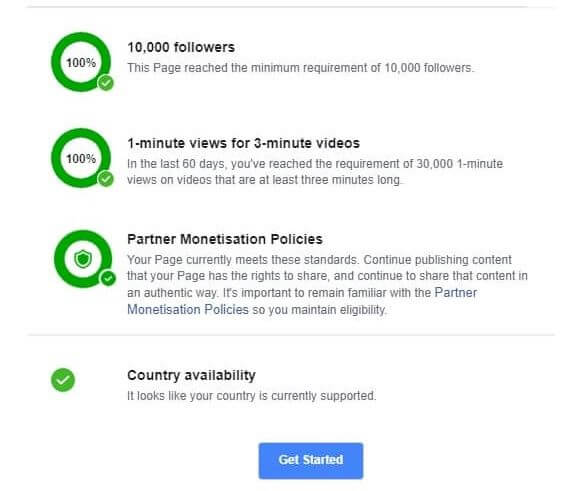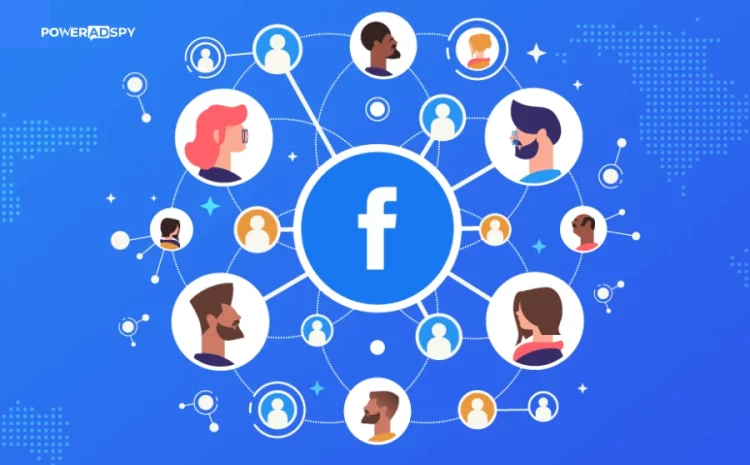
Introduction to Facebook Monetization
Facebook monetization refers to the various methods and opportunities available on the social media platform that allow individuals and businesses to generate revenue. With over 2.9 billion monthly active users, Facebook has evolved into a powerful tool for entrepreneurs, influencers, and brands looking to capitalize on this vast audience. Various features facilitate monetization, including content creation, advertising, and direct engagement with users.
At its core, Facebook monetization entails using the platform’s features to drive income streams. Content creators can produce engaging videos, photos, and written posts to attract followers and keep their audience engaged. Facebook offers monetization options through its Facebook Creator Studio, which includes ad revenue sharing, subscription models, and fan donations. This allows skilled creators to earn income based on their content performance and audience engagement, transforming Facebook into a revenue-generating hub.
In addition to organic content creation, businesses can leverage Facebook advertising tools to boost their visibility and drive sales. By utilizing targeted ads, they can reach specific demographics that align with their products or services, leading to higher engagement rates and ultimately, increased revenue. Furthermore, Facebook Shops enables businesses to set up a storefront directly on the platform, offering a seamless shopping experience for users, which can further enhance monetization strategies.
Engagement with an audience is key to successful Facebook monetization. Building a community around a brand or individual can lead to loyal followers who contribute to financial success through purchasing products or services, or simply by interacting with the content shared. The more engagement a post receives, the greater the likelihood that it will reach a wider audience, amplifying potential earnings. Overall, Facebook provides myriad avenues for monetization that can be effectively utilized by both individuals and businesses to achieve financial goals.
Understanding Facebook’s Monetization Policies
Facebook has established a comprehensive set of monetization policies to ensure that content creators can earn money on its platform effectively and ethically. These policies not only include guidelines for eligibility but also impose several content restrictions that must be adhered to by all users seeking to monetize their content. Familiarity with these guidelines is essential for anyone looking to successfully implement facebook monetization strategies.
To begin with, the eligibility criteria for monetization are multifaceted. Users must generally meet certain thresholds for follower counts, engagement metrics, and content standards to qualify for various monetization options, such as ad placements and brand partnerships. These criteria help maintain a certain quality of content that aligns with Facebook’s larger mission of fostering a safe and enjoyable community for all. Therefore, creators should continuously work towards meeting these thresholds through consistent and engaging content creation.
Equally important are the content restrictions that Facebook enforces. Content must adhere strictly to Facebook’s community standards, which prohibit hate speech, violence, harassment, and adult content, among other things. Violating these restrictions not only jeopardizes the monetization opportunities available to creators but can also lead to suspension or termination of their accounts. As a result, content creators must exercise diligence and caution when producing material for their audiences, ensuring that it aligns fully with Facebook’s values.
Lastly, understanding the significance of adhering to these policies cannot be overstated. Successful facebook monetization hinges on a creator’s ability to navigate the complex rules laid out by the platform while maintaining quality interactions with their audience. Creators that consistently respect and follow Facebook’s monetization policies are more likely to enjoy sustainable success in their revenue-generating endeavors. Knowing these guidelines can be the difference between thriving in the competitive landscape of content creation and facing setbacks that jeopardize monetization efforts.
Types of Content That Generate Revenue on Facebook
Facebook offers a plethora of opportunities for content creators seeking monetization avenues. Understanding the types of content that generate revenue is crucial for anyone looking to leverage this widely-used social media platform effectively. Among the most profitable formats are videos, live streams, and articles. Each type has its unique potential for engagement and monetization, dictated by audience preference and interaction patterns.
Videos, particularly those that are engaging, entertaining, or informative, have proven to be some of the most lucrative options within Facebook monetization. Content creators can utilize Facebook’s ad placement features within their video content, which allows for in-stream ads that can contribute to revenue. Shorter clips designed specifically for social media often perform better because they cater to users’ shortened attention spans. Additionally, incorporating interactive elements in video content, such as polls or questions, can significantly boost engagement rates and viewer retention, further enhancing monetization potential.
Live streaming has gained traction as a valuable tool for building an audience and generating real-time engagement. Content creators can use Facebook Live to interact directly with viewers, answer questions, and even create a sense of community. This immediacy often leads to higher engagement, fostering a loyal follower base. To maximize earnings during live streams, creators can utilize features like Stars, where viewers can send monetary donations as a gesture of appreciation or support.
Long-form articles and posts also play a significant role in Facebook monetization. By leveraging Facebook’s Instant Articles feature, content creators can host high-quality articles that load faster and can be monetized through ad placements. Furthermore, well-researched and well-written articles not only attract readership but also encourage shares, thereby increasing visibility and potential earnings.
Ultimately, the key lies in understanding your audience and creating high-quality, engaging content that inspires interaction. Each medium offers unique avenues for revenue generation, making it imperative for content creators to explore and experiment to identify what resonates best with their audience on Facebook.
Using Facebook Ads for Revenue Generation
Facebook monetization through advertising is a powerful avenue for generating revenue, given its extensive reach and targeting capabilities. To start, creating a Facebook ad involves several steps. Initially, users should navigate to the Facebook Ads Manager platform, which is the hub for campaign setup, management, and analysis. Within this interface, users can select the objective of their campaign, which may range from increasing brand awareness to boosting sales. Choosing the right goal is crucial as it guides the ad strategy and budget allocation.
Once the objective is defined, the next step involves audience targeting. Facebook provides an array of options that enable advertisers to reach specific demographics based on age, location, interests, and behaviors. This precision ensures that ads are shown to individuals who are most likely to engage with the content, thereby increasing the likelihood of conversion. Users can also create custom audiences based on interactions with their Facebook page or website, further enhancing the effectiveness of their marketing efforts.
After launching a campaign, monitoring performance metrics is essential. Facebook offers various analytical tools that allow advertisers to assess key performance indicators such as click-through rates, impressions, and cost per conversion. By reviewing these metrics, users can determine the success of their ads and make informed adjustments to optimize their strategies. Testing different ad formats—such as carousel ads, video ads, or slideshow ads—can also yield insights into which types resonate best with the target audience.
In conclusion, utilizing Facebook ads as a source of revenue generation requires a structured approach that includes careful planning, targeted audience engagement, and ongoing performance analysis. By leveraging Facebook’s robust advertising capabilities, businesses can develop effective campaigns that not only reach but also convert their desired audience into customers, thereby enhancing their overall monetization efforts on the platform.
Exploring Facebook Affiliate Marketing
In today’s digital landscape, Facebook affiliate marketing has emerged as a powerful avenue for individuals and businesses to earn money on the platform. By promoting products and services through affiliate links, users can tap into a lucrative income stream. To effectively capitalize on this opportunity, it is essential to understand how affiliate marketing works within the confines of Facebook and to devise strategies that promote engagement and conversions.
To begin with, selecting the right affiliate programs is crucial. Individuals and brands should look for programs that offer products or services that align with their interests and audience demographic. Utilizing platforms like Amazon Associates, ShareASale, or specific niche-based programs can be advantageous. Consideration should also be given to the commission structure, product quality, and the reputation of the merchant, as these factors can significantly influence conversion rates.
Once the appropriate affiliate programs have been identified, integrating affiliate links into your Facebook content must be executed thoughtfully. Hyperlinking affiliate URLs in posts and captions can lead to direct traffic; however, it’s essential to do this subtly to avoid overwhelming or alienating your audience. Crafting engaging posts that resonate with followers—such as product reviews, tutorials, or informative articles—can encourage organic sharing and increase the likelihood of earning commissions.
Additionally, using Facebook Stories and live videos offers unique opportunities for direct engagement with followers. These formats allow for real-time interactions where creators can showcase products authentically, driving interest and potential sales. Ultimately, success in Facebook affiliate marketing hinges on creating valuable content that blends naturally with affiliate links, fostering trust and encouraging purchases through genuine recommendations.
Engaging Your Audience Through Facebook Groups
Facebook Groups have emerged as a powerful tool for fostering community engagement, making them an invaluable asset for those looking to monetize their presence on the platform. By creating a dedicated space for like-minded individuals, businesses and creators can nurture relationships with their audience while encouraging discussions around shared interests. This level of interaction lays a foundation for monetization opportunities, as strong relationships often translate to increased loyalty and willingness to invest in various offerings.
To effectively engage members within Facebook Groups, it is essential to implement a strategy that fosters active participation. Start by sharing content that resonates with your audience, such as insightful articles, polls, or live Q&A sessions. Encouraging members to contribute their own experiences and ideas can create a dynamic atmosphere. Regularly scheduled group activities, such as challenges or themed discussions, can also maintain interest and keep engagement levels high. Utilizing features like Facebook Live can enhance real-time interaction, making members feel more connected to the community.
Monetizing a Facebook Group can take several forms, depending on the nature of the community and the interests of its members. Offering exclusive memberships can create a sense of value and belonging for committed participants. This approach often involves providing premium content such as webinars, e-books, or in-depth tutorials that are only accessible to paying members. Additionally, exclusive offers or discounts on products and services can incentivize members to invest in their membership. It is crucial to ensure that any monetization strategies align with the interests of the group to maintain engagement and avoid member attrition.
In conclusion, leveraging Facebook Groups for monetization allows creators and businesses to build actionable communities that not only engage but also generate revenue through tailored offerings. By implementing effective engagement strategies and identifying the right monetization avenues, the potential for financial gain on Facebook is substantial.
Utilizing Facebook Live for Real-Time Engagement
Facebook Live has emerged as a powerful tool for content creators looking to enhance engagement and drive monetization strategies. This feature allows users to broadcast live video content in real-time, creating an interactive experience for viewers. Engaging with an audience during a live stream can be exceptionally beneficial, establishing a deeper connection and capturing the attention of viewers effectively. By producing appealing live content, users can foster a sense of community and encourage active participation.
To maximize engagement during live broadcasts, it is essential to identify topics that resonate with your target audience. Creators should aim to provide value through educational content, entertaining segments, or exclusive behind-the-scenes glimpses. Engaging viewers can also take the form of Q&A sessions, polls, or live demonstrations, all contributing to a more dynamic viewing experience. This real-time interaction not only maintains audience interest but also encourages greater viewer retention, enhancing the potential for monetization.
Facebook offers several monetization features specifically designed for live streaming enthusiasts. For instance, the option for viewers to send live donations is a compelling strategy to encourage financial support from the audience. Additionally, implementing fan subscriptions can create a consistent revenue stream, allowing viewers to pay a monthly fee for exclusive content and perks. Creators can also promote products during live streams, effectively turning the broadcast into a sales platform. By showcasing products or services, users can leverage the immediacy of live streaming to generate immediate sales.
Ultimately, utilizing Facebook Live effectively requires a combination of creativity, audience engagement, and strategic monetization approaches. By understanding how to leverage the capabilities of live streaming, content creators can enhance their impact on audiences while harnessing significant financial opportunities through Facebook monetization.
Analyzing Your Success with Insights & Analytics
Understanding the crucial role that Facebook Insights and various analytics tools play in gauging the performance of your monetization strategies is fundamental for success on the platform. By utilizing these tools, content creators can access a wealth of data that informs them about audience engagement, post reach, and the overall effectiveness of their monetization efforts on Facebook.
Facebook Insights provides detailed metrics on how your content is performing. This includes data on likes, shares, and comments, as well as deeper insights such as demographic information about your audience. By analyzing these statistics, you can discern which pieces of content resonate most with your audience. This understanding is pivotal in refining your approach, allowing you to create targeted content that aligns with your viewer’s preferences and interests, thereby enhancing your overall Facebook monetization strategy.
Furthermore, it’s essential to assess audience engagement levels. Pay attention to the types of posts that generate the most interaction and those that fall short. Using these insights, you can tailor your content to bolster audience participation. For instance, if you notice that videos receive more engagement than standard posts, consider pivoting your strategy to incorporate more video content. Understanding audience engagement not only helps in content creation but also impacts advertising performance and partnership opportunities.
In addition to Facebook Insights, consider utilizing other analytics tools that can provide a broader view of your performance across different platforms. Combining Facebook data with insights from these external tools can yield a more comprehensive understanding of your audience and their behavior, vital for refining content and maximizing monetization opportunities. This data-driven approach allows you to continuously optimize your strategies and remain competitive on the platform.
Future Trends in Facebook Monetization
As Facebook continues to evolve, so too will the methods of monetization available to content creators and businesses on the platform. With an increase in competition among social media platforms, Facebook is likely to innovate and introduce new monetization features that can harness the creativity and commercial potential of its user base. One emerging trend is the focus on subscription-based models, where content creators may offer exclusive content for a monthly fee. This approach aligns well with the growing preference for sustainable income streams among creators and could lead to a shift in how value is perceived on social media.
Moreover, Facebook’s potential advancements in artificial intelligence (AI) and machine learning may pave the way for more personalized advertising solutions. These technologies could enable businesses to target advertisements with unprecedented precision, thereby increasing engagement and conversion rates. As Facebook refines its algorithms to understand user behavior better, businesses will be equipped with tools to create more engaging content that resonates with their target audience. This emphasis on tailored experiences can enhance the monetization effectiveness for brands operating within the Facebook ecosystem.
Another trend to observe is the integration of e-commerce capabilities directly into Facebook’s interface. As users increasingly turn to social media for purchasing decisions, Facebook could expand its shopping features, allowing businesses to sell directly from their profiles. This could create additional revenue streams for both businesses and content creators as they leverage their presence on the platform for driving sales. Furthermore, the growing popularity of live streaming could also offer new avenues for monetization, as creators explore options for live commerce events and virtual engagements that inspire spending.
In conclusion, as Facebook continually seeks to enhance user experience and engagement, the landscape of monetization on the platform will undoubtedly transform. By keeping an eye on these trends, content creators and businesses can adapt their strategies to not only survive but thrive in the evolving environment of Facebook monetization.




